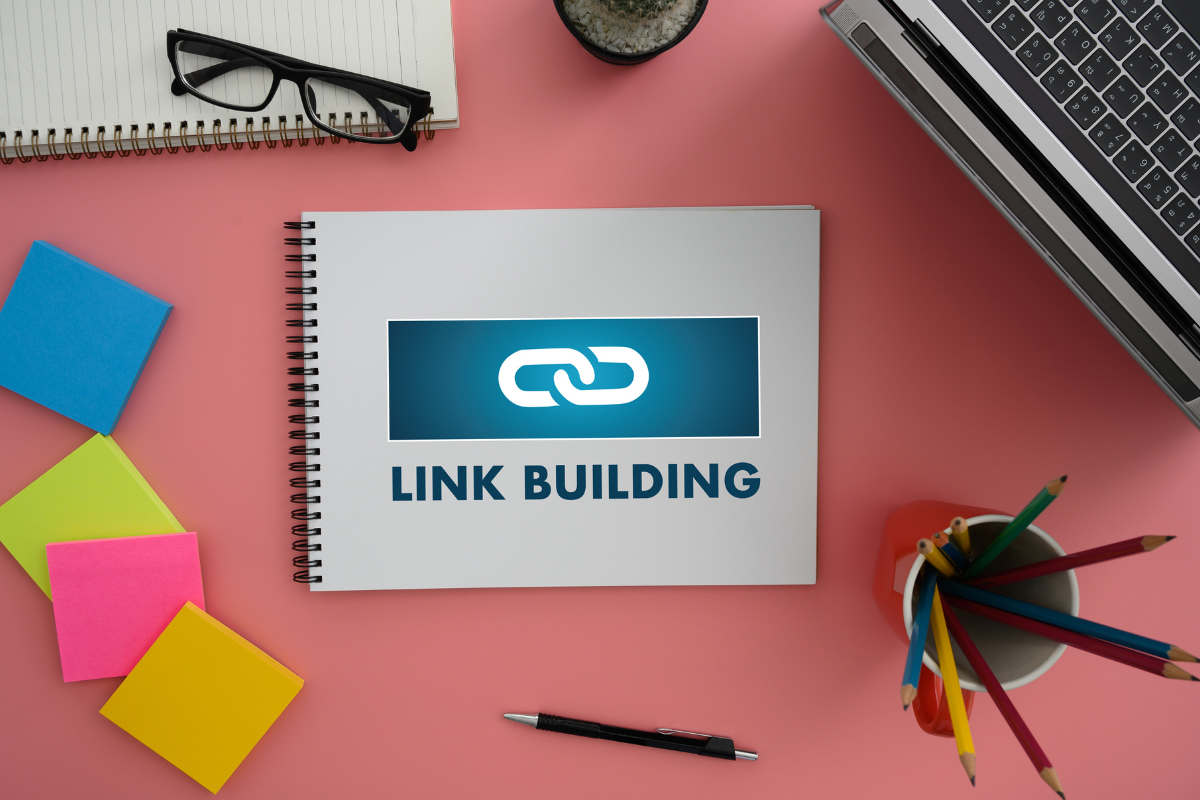
Post Title
What Is Organic SEO and Why You Can't Afford to Ignore It
October 21, 2024
Navigating the digital space can feel overwhelming, right?
Whether you're a small business owner, a marketing pro, or just starting a new venture, you've probably come across the term “organic SEO.” But what does it really mean and why should it matter to you?
Let’s break it down in simple terms and see how mastering organic SEO can help your business grow sustainably over time.
What Is Organic SEO and Why Does It Matter?

Think of organic SEO as planting a garden. Instead of paying for immediate results with ads, you nurture your website with thoughtful strategies that help it grow naturally in search engine results. Organic SEO is all about using relevant keywords, high-quality content, and a smooth user experience to make your site more attractive to search engines like Google.
The best part? While ads offer short bursts of visibility, organic SEO is designed to give you long-term results. This approach helps you build a steady stream of traffic and, ultimately, customers.
For smaller businesses or startups, organic SEO levels the playing field. Even if your competitors are larger, a well-optimized website can attract the right audience without spending money on ads.
The Basics: How Does Organic SEO Work?
Organic SEO may sound technical, but it boils down to a few key elements:
1. Keyword Research:
These are the words your potential customers are searching for. By strategically placing these keywords in your website content, search engines know what your site is about.
2. On-Page Optimization:
This is about fine-tuning individual pages on your site. It includes things like creating clean meta descriptions, using headers (H1, H2, etc.), and ensuring your site is structured in a way that makes sense.
3. Quality Content:
You've heard it before—content is king. Creating valuable, informative, and engaging content keeps visitors on your site longer and helps search engines see you as a reliable source.
4. Link Building:
When other websites link to yours, it’s like a vote of confidence. These backlinks build your credibility, making search engines more likely to rank you higher.
5. Technical SEO:
This involves making sure your site loads quickly, works well on mobile and is easy for search engines to navigate. The smoother your site, the better it will perform in search rankings.
Why Organic SEO Is a Must for Small Businesses and Startups

You might be wondering, "Do I really need to worry about organic SEO?" The answer is a big yes. Here's why:
1. Cost-Effective Growth:
Paid ads work, but they cost money every time someone clicks on them. Organic SEO, on the other hand, gives you ongoing visibility once you’ve put in the effort to optimize.
2. Builds Trust and Credibility:
When people see your site appear in organic search results, they tend to trust it more than an ad. It tells them your business is reputable enough to earn its place naturally.
3. Long-Term Payoff:
Think of
SEO as a marathon, not a sprint. It takes time to see results, but once your site ranks well, it can keep driving traffic without constant attention or spending.
4. Competitive Edge:
With a good organic SEO strategy, you can outrank competitors—even if they have bigger budgets for advertising.
Simple Steps to Get Started with Organic SEO
Not sure where to start? Here are a few easy ways to implement organic SEO strategies:
1. Nail Your Keyword Research:
Use tools like Google Keyword Planner or SEMrush to find phrases your audience searches for. Focus on specific, longer keywords—like “organic fair trade coffee” instead of just “coffee.”
2. Optimize Your Website Pages:
Make sure your page titles, headers, and meta descriptions are clear and contain relevant keywords. Also, optimize images by adding descriptive alt text and compressing them for fast loading times.
3. Create Great Content Regularly:
Post blogs, videos, or infographics that address your customers' needs and answer their questions. Keep your content fresh to encourage repeat visits and keep your rankings high.
4. Build High-Quality Backlinks:
Reach out to reputable sites for collaborations, guest posts, or mentions. The more trusted sites that link back to you, the more search engines will trust your site too.
5. Focus on Local SEO:
If you have a physical store or serve a specific area,
claim your Google Business Profile listing and encourage reviews. Use location-specific keywords to boost your visibility in local search results.
Tracking Your Progress: How to Know If SEO Is Working
You’ll want to keep an eye on your results to see what’s working and what needs tweaking. Here are a few key metrics to monitor:
Key Performance Indicators (KPIs)
Some essential KPIs to monitor include:
- Organic Traffic: Track the number of visitors arriving at your site through organic search results. An increase in organic traffic indicates your SEO efforts are paying off.
- Keyword Rankings: Monitor your target keywords’ search engine rankings. Improvements in keyword rankings can lead to increased visibility and traffic.
- Conversion Rate: Measure the percentage of visitors who complete a desired action, such as making a purchase or signing up for a newsletter. A higher conversion rate suggests your content effectively engages and converts visitors.
- Bounce Rate: This metric indicates how many visitors leave your site after viewing only one page. A high bounce rate may signal that your content isn't resonating with your audience or that your site's user experience needs improvement.
- Backlinks: Monitor the number and quality of backlinks pointing to your site. Acquiring more high-quality backlinks can boost your site's authority and search engine rankings.
Tools for Tracking and Analysis
Several tools can help you monitor your SEO efforts and track your progress. Some popular options include:
- Google Analytics: This free tool provides valuable insights into your website's traffic, user behavior, and conversion rates.
- Google Search Console: This tool offers data on your site's search performance, including keyword rankings and indexing status.
- Visio SEO: Visio SEO's expert organic SEO services for businesses provide effective monitoring of your SEO efforts, tracking progress, and offering insights to enhance strategies for sustained search engine visibility and growth.
Using these KPIs and tools, you can effectively measure the success of your organic SEO strategy and make data-driven improvements. However, it's essential to be aware of common mistakes that can hinder your progress. Let's explore some pitfalls to avoid in your organic SEO efforts.
Avoid These Common SEO Mistakes

Even the best intentions can go off track. While organic SEO can be incredibly beneficial, it's not without its challenges. Avoiding common mistakes can help you stay on the path to success. Here are some pitfalls to watch out for:
- Keyword Stuffing: Overloading your content with keywords can harm your rankings. Focus on creating high-quality, relevant content and using keywords naturally.
- Ignoring Mobile Optimization: With most internet users accessing websites via mobile devices, ensuring your site is mobile-friendly is crucial for maintaining a positive user experience and improving search rankings.
- Duplicate Content: Search engines penalize sites with duplicate content, reducing your chances of ranking well. Ensure your content is unique and adds value to your audience.
- Neglecting Technical SEO: Overlooking technical aspects of your site, such as page speed, site structure, and crawlability, can hinder your search engine rankings. Regularly audit your site for technical issues and address them promptly.
- Not Tracking Progress: Failing to track your SEO efforts can result in missed opportunities for improvement. Regularly monitor KPIs and adjust your strategy based on data-driven insights.
The Hidden Secrets of Organic SEO: What Most Strategists Miss
Here are some overlooked aspects of organic SEO that are often under-discussed but can have a major impact on your website’s performance. By paying attention to these factors, you’ll unlock even more SEO potential.
1. User Intent Matching: Going Beyond Keywords
Many SEO strategists focus heavily on keyword research, but understanding user intent is just as important. Search engines, especially Google, prioritize content that meets the intent behind a search query.
- Informational Intent: The user wants to learn something (e.g., “how to make cold brew coffee”).
- Navigational Intent: The user is searching for a specific site or brand (e.g., “Starbucks homepage”).
- Transactional Intent: The user intends to buy something (e.g., “buy organic coffee beans online”).
Why it matters: If your content doesn’t align with the searcher’s intent, you could rank high for a keyword but still not convert visitors. A blog post ranking for “best sneakers under $100” won’t drive sales if users expect a product listing.
Pro Tip: Review your top-performing pages—are they aligned with user intent? Use tools like Google Search Console to see which queries are leading people to your site and whether those pages deliver on that intent.
2. Topical Authority: Focus on Depth, Not Just Keywords
Search engines love sites that demonstrate topical depth. Instead of writing one article on a topic, consider creating multiple pieces that dive into different angles. This builds topical clusters, reinforcing your site’s authority on a subject.
For example:
If your website sells eco-friendly cleaning supplies, don't stop at just a product page. You could publish:
- A guide on "How to Clean Naturally Without Harmful Chemicals."
- A list of "The Best Eco-Friendly Cleaning Solutions for Pets."
- A blog on "The Impact of Traditional Cleaning Products on the Environment."
By interlinking these pieces with internal links, you help search engines understand the depth of your expertise. This enhances your relevance for a wider range of queries.
3. User Experience (UX) Signals: The Silent SEO Factor
Many SEO guides mention user experience in passing, but UX signals directly impact organic rankings. Google measures how users interact with your site through several key metrics:
- Time on Page: How long visitors stay on your site.
- Pages per Session: How many pages users visit before leaving.
- Bounce Rate: How quickly users leave after landing on one page.
A positive user experience indicates to Google that your content is valuable and worth ranking. Improving UX involves more than just fast load times; it’s about designing engaging, easy-to-navigate pages that keep users engaged.
How to Improve UX for SEO:
- Use clear calls-to-action (CTAs).
- Make your design mobile-friendly.
- Create scannable content with bullet points and subheadings.
4. Content Pruning: Removing What No Longer Works
SEO isn’t just about adding new content—it’s also about knowing when to remove or consolidate underperforming pages. Over time, outdated or thin content can hurt your site's SEO performance. This process is called content pruning.
Signs You Should Prune Content:
- Pages with little to no traffic.
- Content that no longer aligns with your business goals.
- Duplicate or near-duplicate articles.
By deleting irrelevant content or merging similar posts, you can boost the overall quality of your site, helping search engines crawl and index it more efficiently.
5. Image SEO: More Than Just Alt Text
Most people know about adding alt text for accessibility, but image SEO goes beyond that. Properly optimized images can drive traffic through Google Image Search and improve page speed, which is a ranking factor.
Tips for Better Image SEO:
- Use descriptive file names (e.g., “organic-coffee-beans.jpg” instead of “IMG12345.jpg”).
- Compress images to improve load times without sacrificing quality.
- Add captions when relevant—they help users and provide additional context for search engines.
With the rise of visual search, optimizing your images could give you an edge.
6. The Role of Internal Links in SEO: A Missed Opportunity
While backlinks get all the attention, internal linking plays a significant role in SEO. Internal links help search engines discover and rank your pages while guiding users through your site.
Internal Linking Tips:
- Link from high-traffic pages to underperforming ones to spread authority.
- Use descriptive anchor text that tells users and search engines what the linked page is about.
- Create a logical structure that helps users easily find related content.
Implement a Winning Organic SEO Strategy with Visio SEO!

In a world where consumers turn to search engines to find information, organic SEO is not optional—it's essential. Whether you’re building a personal brand, running an e-commerce site, or managing a local business, organic SEO helps you reach your target audience, build authority, and drive long-term success.
While it may take time and effort, SEO is a long-term investment. By focusing on high-quality content, good user experience, and thoughtful optimization, you’ll build a solid foundation for sustainable growth.
Need a hand? Consider reaching out to Visio SEO for more organic SEO tips and tailored support.
Contact Us
Contact Us
We will get back to you as soon as possible
Please try again later
Subscribe to Our Newsletter
Stay up to date with our latest offers and promotions by signing up now!
Contact Us
We will get back to you as soon as possible.
Please try again later.

We are the premier digital marketing solution in Elgin. Contact us today to get your free, no-obligation consultation!










